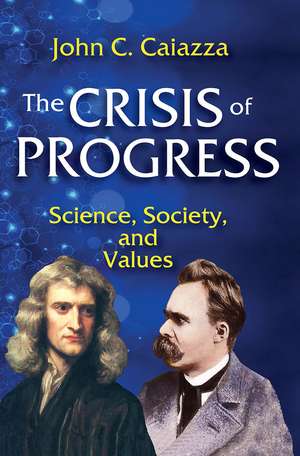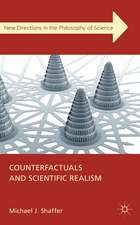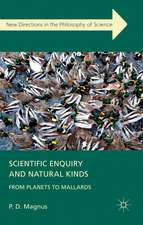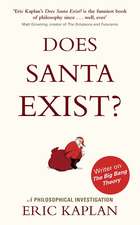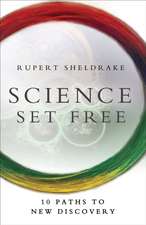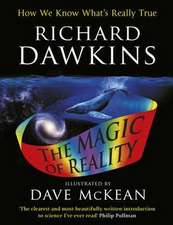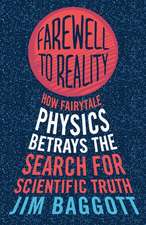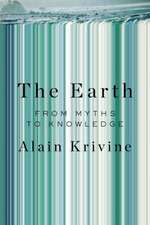The Crisis of Progress: Science, Society, and Values
Editat de John C. Caiazzaen Limba Engleză Paperback – 14 oct 2024
Caiazza presents historical examples, both of scientific inquiry and social and cultural themes, to examine the subject of progress. Beginning with the Whig model and progressive political values exemplified by Bacon and Dewey, he also examines other variations, the Enlightenment, cosmopolitanism, and totalitarianism. Technology, argues Caiazza, also has a stultifying effect on Western culture and to understand the idea of progress, we must take a philosophic rather than a scientific point of view. Modern cosmology has inevitable humanistic and theological implications, and major contemporary philosophers reject social science in favour of ancient concepts of virtue and ethics.
In the end, Caiazza writes that time is an agent, not a neutral plain on which scientific and historical events occur. We can expect technology to keep us in stasis or become aware of the possibility of transcendence. This book will be of interest for students of scientific history and philosophy.
| Toate formatele și edițiile | Preț | Express |
|---|---|---|
| Paperback (1) | 257.28 lei 6-8 săpt. | |
| Taylor & Francis – 14 oct 2024 | 257.28 lei 6-8 săpt. | |
| Hardback (1) | 761.76 lei 6-8 săpt. | |
| Taylor & Francis – 31 dec 2015 | 761.76 lei 6-8 săpt. |
Preț: 257.28 lei
Preț vechi: 310.01 lei
-17% Nou
Puncte Express: 386
Preț estimativ în valută:
49.23€ • 51.53$ • 40.98£
49.23€ • 51.53$ • 40.98£
Carte tipărită la comandă
Livrare economică 31 martie-14 aprilie
Preluare comenzi: 021 569.72.76
Specificații
ISBN-13: 9781032929125
ISBN-10: 103292912X
Pagini: 174
Dimensiuni: 152 x 229 mm
Greutate: 0.32 kg
Ediția:1
Editura: Taylor & Francis
Colecția Routledge
Locul publicării:Oxford, United Kingdom
ISBN-10: 103292912X
Pagini: 174
Dimensiuni: 152 x 229 mm
Greutate: 0.32 kg
Ediția:1
Editura: Taylor & Francis
Colecția Routledge
Locul publicării:Oxford, United Kingdom
Public țintă
AcademicCuprins
1 Introduction: History and Impact of the Idea of Progress
On Progress, Its Variations, and Rejection
The Entanglement of Science and Social Values
Three Themes
2 Whig History and the Progressive Society
Whig History and Critical History
Evidence of Progress in Science 1: Discovery—Spectrography
Evidence of Progress in Science 2: Theory—Mendel's Laws
The Separation Thesis: Modern Science Departs from the Medieval World-View
Leaving Aristotle, One Science at a Time
The Projected Ideal Ends of Science
Bacon's Prophetic Vision in the New Atlantis
Science-Inspired Social Norms—Dewey's Progressivism
3 Enlightenment Progress and the Cosmopolitan Society
Enlightenment Variation of Scientific Progress
Duhem's Continuity Challenge
Duhem's Philosophy of Science and the Continuity Thesis
Cultural and Social Criticism
Koyre's Infinity Defense of Enlighted Science
Causality and Mechanical Reason
Kant on Diminished Reason and the Cosmopolitan Social Ideal
4 Progress by Reduction and the Totalitarian Temptation
Reduction in Full
Reduction and the History of Science
Anti-Reductionist Views
Hobbes and the Totalitarian Temptation
Reduction and Atheism
5 Historicism, Relativism, and the Open Society
From the Philosophy of Science to the History of Science
Deep Patterns: Vico
Global Wholes: Kuhn
Historicist Idealism and Its Critics: Scheffler
Meaning and Science History: Popper
Historicism and Popper's Contentless "Open Society"
The Open Society, Right and Left
6 Where We Are Now: Technology and Culture
Techno-Secularism
Technology and Cultural Stasis
Science Itself
Digital Fantasy Replaces Lived Reality
The Electronic Ego
7 Philosophy, Progress, and Cosmology
Modern Science and Philosophy in Contrast
Three Examples of Scientists Doing Philosophy (and Theology)
Is Not Naturalism a Philosophy?
The Law of Diminishing Reductive Returns
The Philosophic Timeline of Scientific Progress
Wittgenstein, Toulmin, and Natural Theology
8 Cosmology and Human Existence
Cosmic Role of the Observer in Postmodern Physics
Scientific Cosmology and Human Existence
Two Concepts of God: Scientific and Religious
Recent Science Reveals the Permanence of Natural Human Differences
The Limits of Social Science—Nussbaum
The Recovery of Ancient Virtue—MacIntyre
9 Conclusion: Crisis, Time, and the Choice
Crisis in Progress and Social Values
Agentic Time
The Nature of the Crisis: Pascal or Nietzsche?
Index
On Progress, Its Variations, and Rejection
The Entanglement of Science and Social Values
Three Themes
2 Whig History and the Progressive Society
Whig History and Critical History
Evidence of Progress in Science 1: Discovery—Spectrography
Evidence of Progress in Science 2: Theory—Mendel's Laws
The Separation Thesis: Modern Science Departs from the Medieval World-View
Leaving Aristotle, One Science at a Time
The Projected Ideal Ends of Science
Bacon's Prophetic Vision in the New Atlantis
Science-Inspired Social Norms—Dewey's Progressivism
3 Enlightenment Progress and the Cosmopolitan Society
Enlightenment Variation of Scientific Progress
Duhem's Continuity Challenge
Duhem's Philosophy of Science and the Continuity Thesis
Cultural and Social Criticism
Koyre's Infinity Defense of Enlighted Science
Causality and Mechanical Reason
Kant on Diminished Reason and the Cosmopolitan Social Ideal
4 Progress by Reduction and the Totalitarian Temptation
Reduction in Full
Reduction and the History of Science
Anti-Reductionist Views
Hobbes and the Totalitarian Temptation
Reduction and Atheism
5 Historicism, Relativism, and the Open Society
From the Philosophy of Science to the History of Science
Deep Patterns: Vico
Global Wholes: Kuhn
Historicist Idealism and Its Critics: Scheffler
Meaning and Science History: Popper
Historicism and Popper's Contentless "Open Society"
The Open Society, Right and Left
6 Where We Are Now: Technology and Culture
Techno-Secularism
Technology and Cultural Stasis
Science Itself
Digital Fantasy Replaces Lived Reality
The Electronic Ego
7 Philosophy, Progress, and Cosmology
Modern Science and Philosophy in Contrast
Three Examples of Scientists Doing Philosophy (and Theology)
Is Not Naturalism a Philosophy?
The Law of Diminishing Reductive Returns
The Philosophic Timeline of Scientific Progress
Wittgenstein, Toulmin, and Natural Theology
8 Cosmology and Human Existence
Cosmic Role of the Observer in Postmodern Physics
Scientific Cosmology and Human Existence
Two Concepts of God: Scientific and Religious
Recent Science Reveals the Permanence of Natural Human Differences
The Limits of Social Science—Nussbaum
The Recovery of Ancient Virtue—MacIntyre
9 Conclusion: Crisis, Time, and the Choice
Crisis in Progress and Social Values
Agentic Time
The Nature of the Crisis: Pascal or Nietzsche?
Index
Descriere
This book is about the concept of progress, its separate varieties, its current rejection, and how it may be reconsidered from a philosophical and scientific basis
